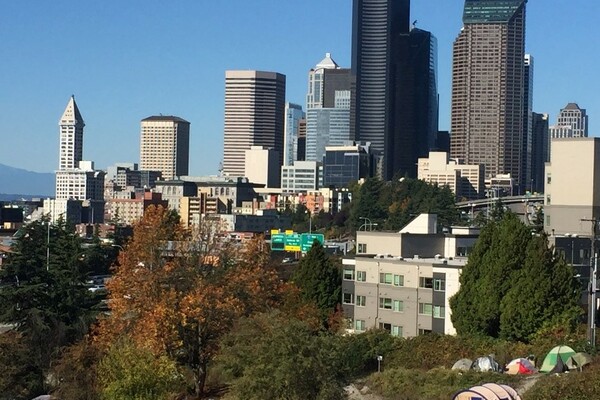Melissa Espinoza, a PhD student at Heriot Watt University, outlines the research she presented at the Housing Studies 2018 conference on homelessness and social control.
I was fortunate enough to present in the very early stages of my research as an ECR at HSA 2018. I was only a few months into my research during the time of my presentation. As it goes in research, my topic has evolved and my role and lens has too. I am currently conducting my fieldwork in Seattle (King County), USA.
The scale of homelessness and the visibility of it is daunting and tragic. As I conduct my fieldwork in Seattle, I am also working for King County as a Homelessness Policy Project Manager. My role has left me hopeful for what change could come to Seattle and how my research may have the ability to impact future local responses to homelessness.
To give some context, Seattle has the third highest population of people experiencing homelessness in USA. However, if you put it in terms of per capita, it has the highest homeless population in USA (Levy, 2017). Using the point in time count in 2018, it is estimated that 12,112 (All Home, 2018) people were experiencing homelessness and of those 12,112 people it was estimated that 6,320 (All Home, 2018) are unsheltered. There is no doubt that current responses are not enough, however there are different forms of innovation happening at small scales around Seattle, often lead by people who are experiencing homelessness.
Encampments and the role they play in addressing homelessness are one of those innovations. Life in encampments should not be glorified (people need safe shelter), however when you are talking about a system where waiting lists for emergency shelter are long and rain persistent, and affordable fair market rate housing is scarce, encampments often may seem like the most immediate or even only option for many. However, what should be highlighted are the reasons why people say they live in encampments.
Throughout previous encampment research (Loftus-Farren, 2011; Lutz, 2015; Herring and Lutz, 2015; Spark, 2017; Herring, 2014) the idea of social control and choice was touched on but not explored. Many residents in previous research talk about living in encampments because (besides limited options) they provided space, community, and security; however, some residents were required to reluctantly participate in religious settings. This finding speared my interests to find out more about the role of social control in the different key stakeholders’ responses to homelessness, and how different types of social control impact the decisions made by people experiencing homelessness.
If Seattle is committed to creating a person-centred response to homelessness, then it is vital they hear from people experiencing homelessness what impacts their decision in emergency housing, and how they experience different forms of social control. My research aims to answer this question while looking specifically at those seeking shelter in encampments both legalised and those susceptible to sweeps. I hope to share my fieldwork findings with the people who participated, with local key stakeholders and at the next HSA conference in 2019!





